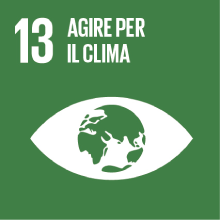INTERNATIONAL LAW MOD. 1
- Anno accademico
- 2024/2025 Programmi anni precedenti
- Titolo corso in inglese
- INTERNATIONAL LAW MOD. 1
- Codice insegnamento
- LM5740 (AF:517845 AR:288826)
- Lingua di insegnamento
- Inglese
- Modalità
- In presenza
- Crediti formativi universitari
- 6 su 12 di INTERNATIONAL LAW
- Livello laurea
- Laurea magistrale (DM270)
- Settore scientifico disciplinare
- IUS/13
- Periodo
- II Semestre
- Anno corso
- 1
- Spazio Moodle
- Link allo spazio del corso
Inquadramento dell'insegnamento nel percorso del corso di studio
Il primo modulo, che si svolge contemporaneamente al secondo (due slot, il primo modulo I e il secondo modulo II), è pensato per fornire una solida conoscenza del diritto internazionale, con approfondimenti giuridici relativi a questioni attuali.
L'obiettivo del corso è duplice:
1) fornire agli studenti e alle studentesse il linguaggio giuridico necessario per comprendere i testi giuridici internazionali di base;
2) fornire agli studenti e alle studentesse capacità di pensiero critico giuridico, che consenta loro di applicare le conoscenze di base a fenomeni della contemporaneità.
E' un periodo (drammaticamente) interessante per lo studio del diritto internazionale. Questioni di diritto internazionale sono al centro dei dibattiti pubblici: globalizzazione, conflitti armati, diplomazia, diritti umani, organizzazioni internazionali, imprese transnazionali, soluzione delle controversie. Il diritto internazionale penetra e si coordina con i sistemi giuridici di diritto interno.
Questo corso conduce gli studenti e le studentesse attraverso concetti e problemi di diritto internazionale, incluso il funzionamento e la struttura del sistema. Il corso coprirà i principali argomenti della materia: fonti e soggetti del diritto internazionale, il concetto di jurisdiction, diritto internazionale e uso della forse, responsabilità degli Stati. Coprirà altresì, nel secondo modulo, questioni cruciali quali il diritto internazionale dei diritti umani, il diritto dell'ambiente nonché le nuove evoluzioni "ecologiche", il diritto penale internazionale, il diritto internazionale delle migrazioni. Il corso analizzerà altresì casi decisi da tribunali e corti internazionali e regionali, nonché testi giuridici di riferimento.
Risultati di apprendimento attesi
1) should demonstrate knowledge and understanding in international law, of the subjects and sources of international law, of the mechanisms of resolution of disputes, of the prohibition of the use of force, of human rights law;
2) could apply their knowledge and understanding in a manner that indicates a professional approach to their possible work or vocation (internships and work in NGOs, international organisations, agencies, etc), in particular concerning the mechanisms of protection of human rights;
3) should have the ability to gather and interpret relevant legal instruments (both soft and hard law) of the present situation to elaborate legal reasonings that include reflection on relevant legal and political issues;
4) could communicate information, ideas, problems and solutions to both specialist and non-specialist audiences;
5) should have developed those learning skills that are necessary for them to continue to undertake more advanced courses or further study with a high degree of autonomy.
Prerequisiti
Contenuti
2. What is international law for?
3: The sources of international law
4: The law of treaties
5:Statehood, self-determination and recognition (with specific focus on the most recent cases)
6: International organisations
7. The individual
8: Jurisdiction and sovereignty
9: Immunities
10: The relationship between international and national law
11: State responsibility, countermeasures and sanctions
12: The peaceful settlement of disputes, with specific focus on the international court of justice
13: The application of international law: paving the way for module 2. Approaches to international law.
Testi di riferimento
Further material will be available on moodle: decisions and resolutions to be discussed in class for attending students.
Additional readings (for those who would like to continue his/her studies in international law):
Carreau-Marrella, Diritto internazionale (new edition) also available in French.
Modalità di verifica dell'apprendimento
With regard to the first module, the exam is aimed at demonstrating knowledge and understanding of international law, of the subjects and sources of international law, of the mechanisms of resolution of disputes, of the prohibition of the use of force, of State responsibility. Concerning the second module, the exam has the purpose to assess knowledge of the fields of application of international law as explored in the course, namely international environmental law, international criminal law and international human rights law.
The questions are formulated on model case studies, which are aimed at verifying the capacity of the student to support an argument and apply what studied in the book to current situations and international crises. Students have to solve model case studies by applying legal instruments and procedures studied during the course.
A mid-term assignment (multiple choice) will be scheduled after the end of module I. The mid-term will modify the final exam, which will be composed, for those who pass it, of two instead of three questions.
Evaluation of the final exam
18-21:
- sufficient knowledge and understanding of international law;
- limited ability to solve simple legal questions;
- sufficient communication skills, especially in relation to the use of specific language.
22-24:
- fair knowledge and understanding of international law;
- fair ability to solve simple legal questions;
- fair communication skills, especially in relation to the use of specific legal language.
25-27:
- good knowledge and understanding of international law;
- good ability to solve simple legal questions;
- appropriate communication skills, especially in relation to the use of specific legal language.
28-30
- very good knowledge and understanding of international law;
- very good ability to solve simple legal questions;
- fully appropriate communication skills, especially in relation to the use of specific legal language.
Honours will be awarded in the presence of applied knowledge and understanding with reference to the syllabus, ability to connect legal concepts and communication skills, excellent.
Modalità di esame
Metodi didattici
Students attending the course will be provided some additional materials for reflection (judgments, resolutions, legal documents) on which a discussion in class will be based.
It will include the analysis of (real or provided by the professor) case-studies on the resolution of disputes.
Altre informazioni
Students that would like to write a thesis in international law can ask further information to the professor after the exam.
Obiettivi Agenda 2030 per lo sviluppo sostenibile
Questo insegnamento tratta argomenti connessi alla macroarea "Cambiamento climatico e energia" e concorre alla realizzazione dei relativi obiettivi ONU dell'Agenda 2030 per lo Sviluppo Sostenibile


